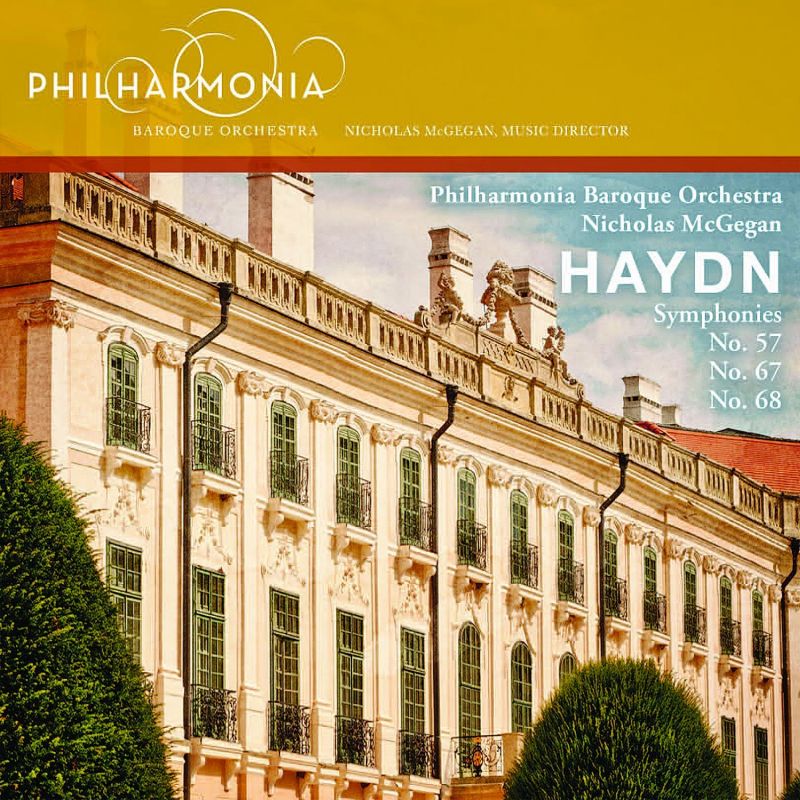HAYDN Symphonies Nos 57, 67 & 68
View record and artist detailsRecord and Artist Details
Composer or Director: Joseph Haydn
Genre:
Orchestral
Label: PBP
Magazine Review Date: 04/2015
Media Format: CD or Download
Media Runtime: 78
Mastering:
DDD
Catalogue Number: PBP08

Tracks:
| Composition | Artist Credit |
|---|---|
| Symphony No. 57 |
Joseph Haydn, Composer
Joseph Haydn, Composer Nicholas McGegan, Conductor Philharmonia Baroque Orchestra |
| Symphony No. 67 |
Joseph Haydn, Composer
Joseph Haydn, Composer Nicholas McGegan, Conductor Philharmonia Baroque Orchestra |
| Symphony No. 68 |
Joseph Haydn, Composer
Joseph Haydn, Composer Nicholas McGegan, Conductor Philharmonia Baroque Orchestra |
Author: David Threasher
Symphony No 68 is a slightly different matter. It is a favourite of Harnoncourt’s (it is appended to his ‘London’ Symphonies set), perhaps because of its elevated eccentricities: the timebomb-tick of the slow movement, with its gathering rhythmic momentum, and the amusing distractions of the finale. Interestingly, while second-half repeats are not observed in the two earlier symphonies, in No 68 all repeats are observed. It’s the best of the three symphonies, so it’s good to hear more of it, but a black mark for inconsistency nonetheless. (On the other hand, it means three symphonies fit on a single disc.) McGegan is no mean Haydn conductor; I wonder if he might soon turn to Symphonies Nos 79 and 81 – the only two of the 106 yet to be recorded on period instruments – before someone else beats him to it.
Discover the world's largest classical music catalogue with Presto Music.

Gramophone Digital Club
- Digital Edition
- Digital Archive
- Reviews Database
- Full website access
From £8.75 / month
Subscribe
Gramophone Full Club
- Print Edition
- Digital Edition
- Digital Archive
- Reviews Database
- Full website access
From £11.00 / month
Subscribe
If you are a library, university or other organisation that would be interested in an institutional subscription to Gramophone please click here for further information.




